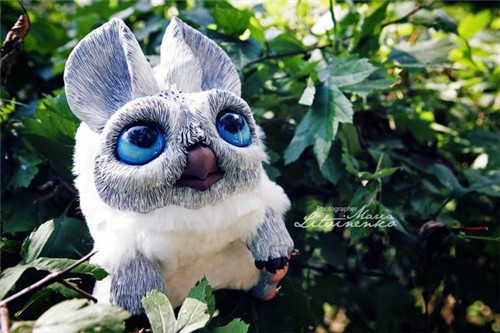
英文小作文春节【一】
When holiday comes, thousands of people pour into the tourist sites, they want to relax themselves and enjoy the beautiful scenery. But Chinese people have a bad habit, they like to leave some notes on the site, proving them have been here before. Such a behavior has been criticized by the public, because the leaving note will damage the preservation of the tourist site. Most of the tourist sites are part of our country\'s historical relics, these sites are priceless, it is everyone\'s duty to protect the sites. When we go to travel, we should behave ourselves. First, we need to have the idea that no rubbish being leaved behind when we leave the site. We should take away what we bring, keep the environment clean. Second, no any notes being written in the sites. Though in the old days, Chinese workers like to leave their names on the sites, but now it is a new world, we need to behave ourselves.
英文小作文春节【二】
Last summer holiday, I went to Beijing for a week. The first day when I took off at the capital airport , it gave me the first feeling was cleanand tidy. The people in Beijing were very friendly. T he second day, I visited Beijing city. I went to the WangFujing Ave , I tasted many famous snacksand Beijing Roast Duck, they are very delicious. I also went to the XinDongfang square, it was a very big shopping mall, it took me about half an hour to walk between two doors. I can saw many famous brands: Cucci, Chanel, Rolex, Seiko, even the new Audi cars. It made me really want to stay in Beijing .The third day I visited the Tian’anmen Square, and it’s very beautiful. And the Chang’an Ave is wide ,straight and clean. The forth day, I went to the Forbidden City. It made me felt the emperor ’ s royal mausoleum was very luxury. The fifth day I went to the Summer Palace, I went boating there. The sixth day, I visited the Great Wall, it’s very terrific, this great architectural complex told us how clever the Chinese people are ! T he last day, I visited the Beijing University ----one of the topest universities of China . There are many famous people were graduated t here.
That’s a happy travel. In the future, I want to visit many countries. This is my dream.
英文小作文春节【三】
作为当今最有影响力之一的语言学理论,功能语法以社会学为导向,着重语言的功能性研究。其创始人韩礼德从儿童和成人的语言学习角度将语言功能高度理论化。根据韩的观点,儿童所使用的最原始的语言能够被简概为一套高度编码且抽象的功能,其中包含三个元功能(纯理功能):概念功能(ideational function),人际功能(interpersonal function)以及语篇功能(textualfunction)[1]。概念功能进一步被细化为和逻辑功能,表述在我们周围及自身所发生的事情,称之为“内容(content)”。概念功能通过及物性(transitivity)来实现,及物性由六个过程组成,即物质过程,心理过程,关系过程,行为过程,言语过程和存在过程。
功能语法把用来表达一系列概念意义,抽象和具体的外部世界,以及人的意识过程的结构单位叫做小句(clause),即句子或类似句子结构的统称。一个小句包含三个功能成份:过程(process),参与者(participant),和环境(circumstantials)。其中主要成份过程代表事件或状态,参与者即从时间,地点,方式等各个层面参与的人或事功能语法,而具体的参与者功能取决于过程类型。语言的及物性和作格性能够帮助将过程进行归类,及物性把经验世界看作是一套可控的过程模式。简而言之,及物性是与概念元功能相一致的小句语法,及物性分析能够定义不同的过程类型并由此决定过程的参与者,从而明确过程与参与者之间的逻辑关系[2]。
在韩提出的六个过程中,物质,心理和关系过程是最主要的。他们作为经验理论,是语法的奠基石,呈现三种截然不同的结构,是篇章中所有小句的主体。同时,韩提出了一个假设,这三个过程在整个语言中的分布频率大致平衡。然而,他自己也承认,此理论未经证实[3]。韩礼德用来阐释六个过程的小句皆为简短且相互独立无关联的句子,而此后的相关过程模式研究也仅仅探究了口头语篇或主观自创的例句cssci期刊目录。
英文小作文春节【四】
2.1. 物质过程(Material Process)
通俗来说,物质过程即为“做”的\'过程,是外部经验的再现,也是某事被完成的过程。物质过程一般由行为动词,动作者(Actor)和目标(Goal)组成。动作者是行为的发出者,如句子 “She cooks for the children on the stove”中的“she”。而目标含指向性,表示某行为或动作的承受者,如“onetuner and handle 1,000 pianos a year”中的“1000 pianos”。值得注意的是,物质过程并非纯指具体的物理动作,它也可是抽象的,如句子 “ he learned fast”.
2.2 心理过程(Mental Process)
心理过程表达的是人所感,所想,所思等心理活动的过程,一般有两个参与者,一个是心理活动的感觉主体即“感觉者”(senser),另一个是被感知的客体即“现象”(phenomenon)。与物质过程不同的是,心理过程的参与者之一是可感觉,反应和认知的人,如“Tom dislikes her ‘special’ pumpkin pie intensely”中的“Tom”。通过修辞手法被赋予意识和感知功能的物也可作为 “感觉者”,如“it”在句子“it (money) pleasured grandpa to put a few golden Indian heads onhis vest”中的作用。
2.3 关系过程(Relational Process)
关系过程表达的是“是”的关系,即具有某种联系的物,人,情形或事件之间的关系,或指某一物的属性,特点或所处状态等,大致可分为两种模式:修饰型(attributive)和认同型(identifying)。修饰型包含两个参与者,载体(carrier)即含有某种属性的实体,属性(attribute),即对载体的限定功能语法,在例句“one of the wise Men was educational in the highestsense...”中,“one of the wise Men”是载体,“educational”是属性。认同型则包含被认同者(identified)和认同者(identifier),如“The shcoolhouse is a two-room frame buiding”,“the schoolhouse”是被认同者,“a two-room frame building”是认同者。
2.4 行为过程(Behavioral Process)
行为过程指的是各种生理或心理行为,如呼吸,咳嗽,微笑,哭泣,做梦等。行为过程只有一个参与者,通常为人的行为者(behaver),例如“in thecountry he sleeps better at night”,“the pupilssit still at their desks in class”。某些情况下,行为过程与物质和心理过程的界限并不明显,因为行为者作为意识体与感觉者非常相似,而行为者发出的动作类似于物质过程中的“做”。
2.5 言语过程(Verbal Process)
言语过程是通过语言交换信息的过程,广义上来说就是“说”的过程,通常用到的动词有say,tell,talk,praise,describe等,如“he may proclaim his ownvirtue or skill”。言语过程的主要参与者有说话者(sayer),听话者(receiver),以及言语内容(verbiage)。 说话者可以是任何能表达某种信息的物体,并不一定要求具有意识性,如 “the book tells of one soldier who survived”。
2.6 存在过程(Existential Process)
存在过程表达的是某物或人存在的情况,通常只有一个参与者,即存在物(existent)。典型的存在过程如“thereis no supervised play”,或含表存在的动词,exist,remain,come about,happen等等。



















